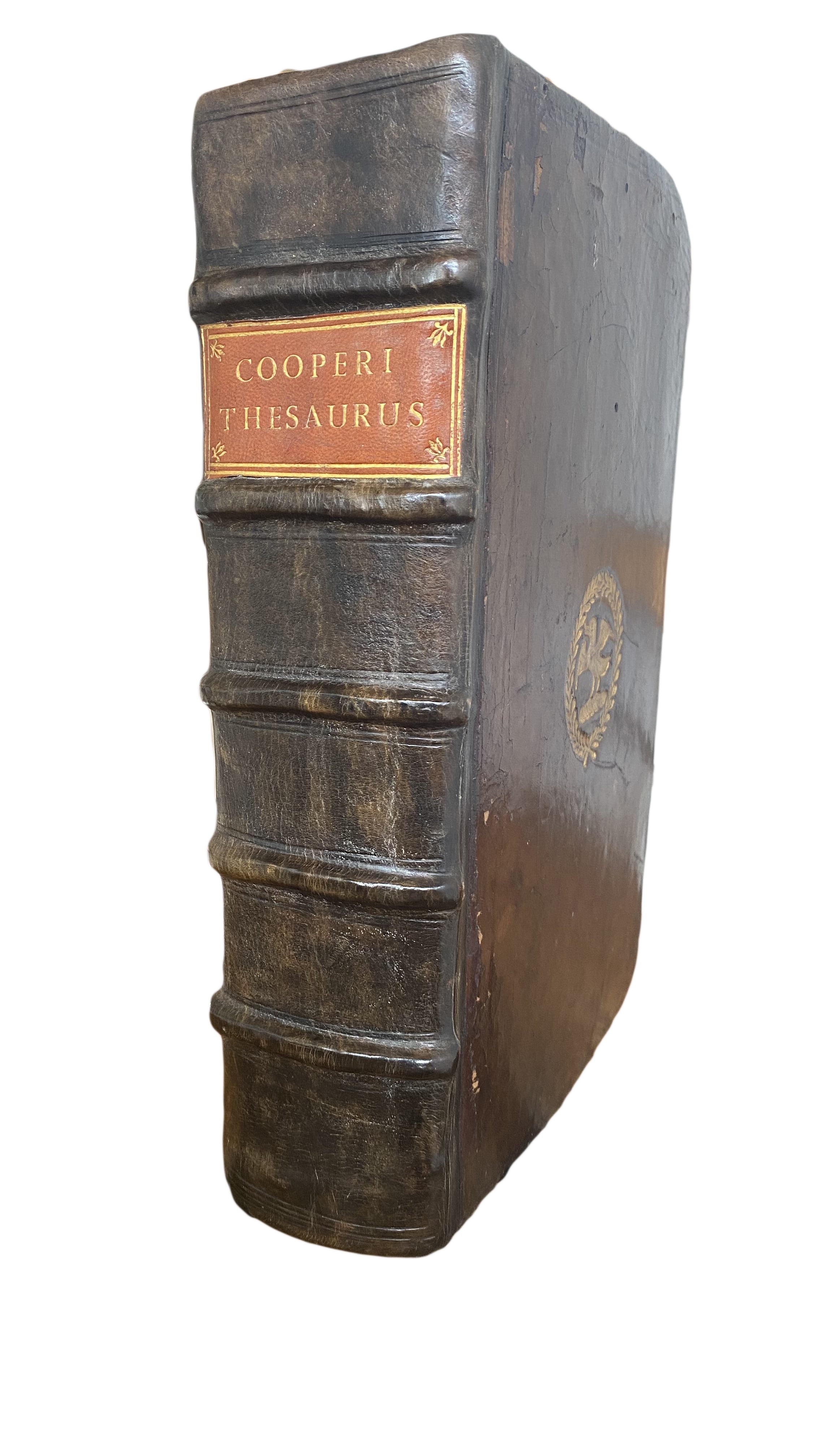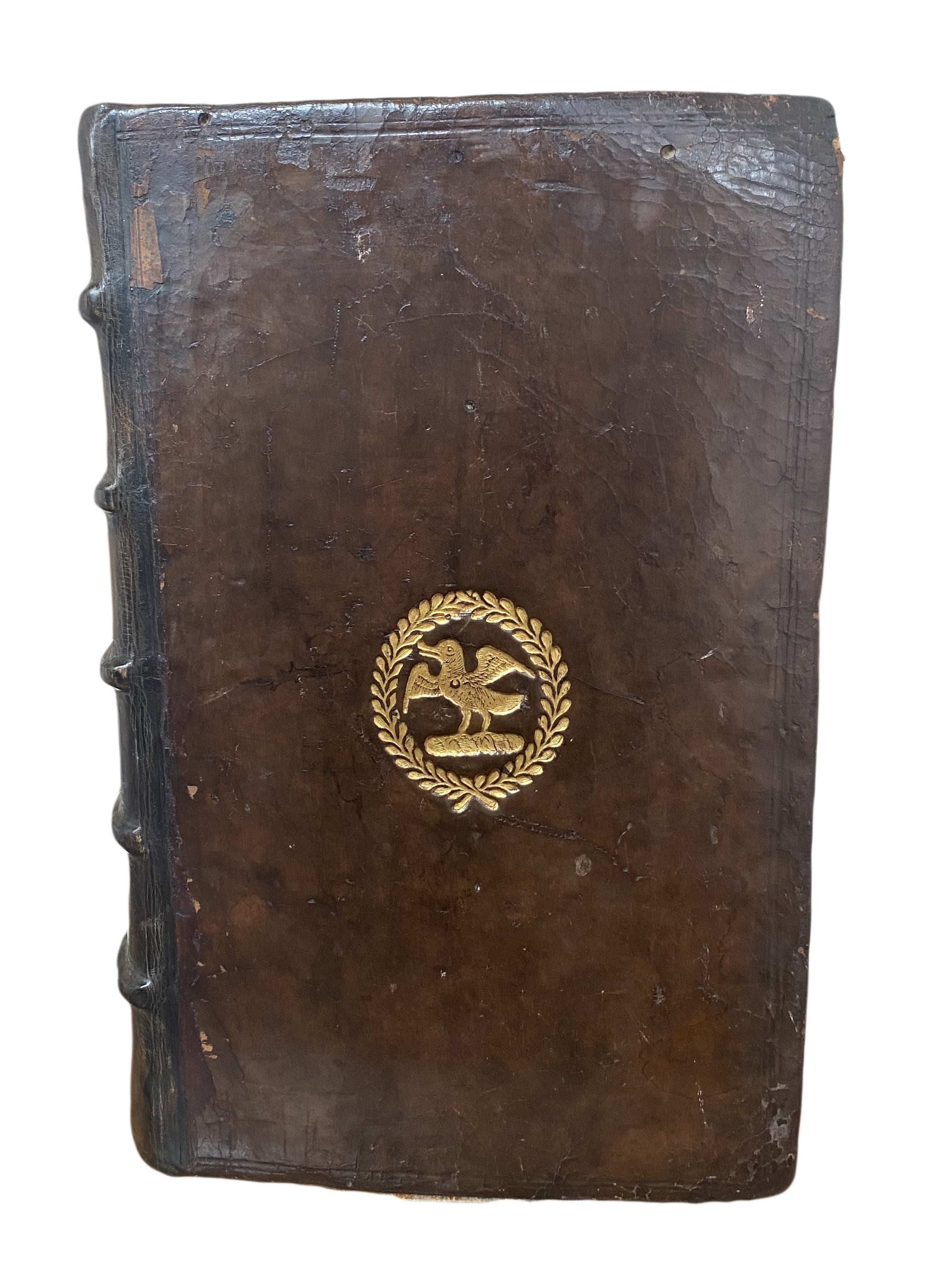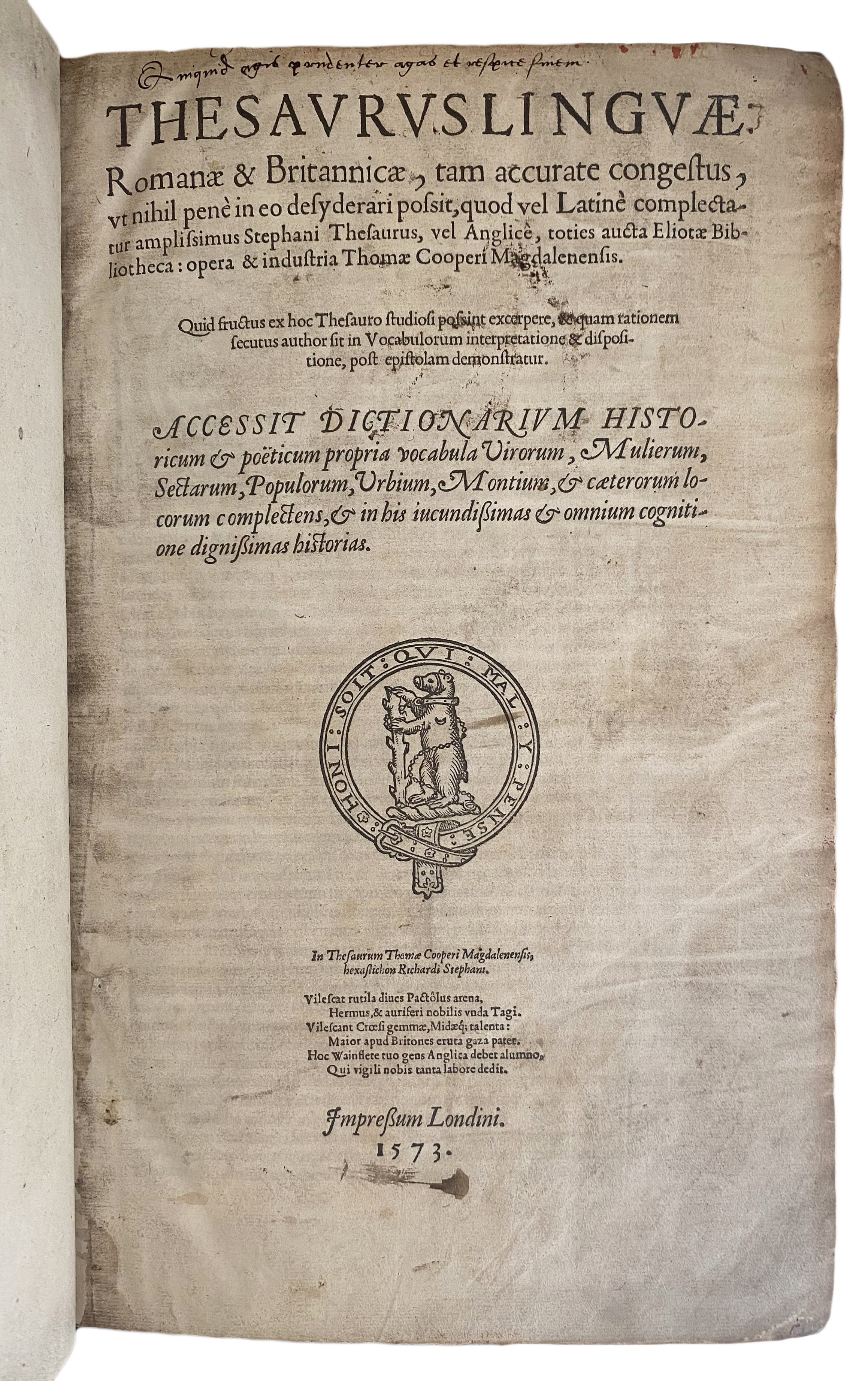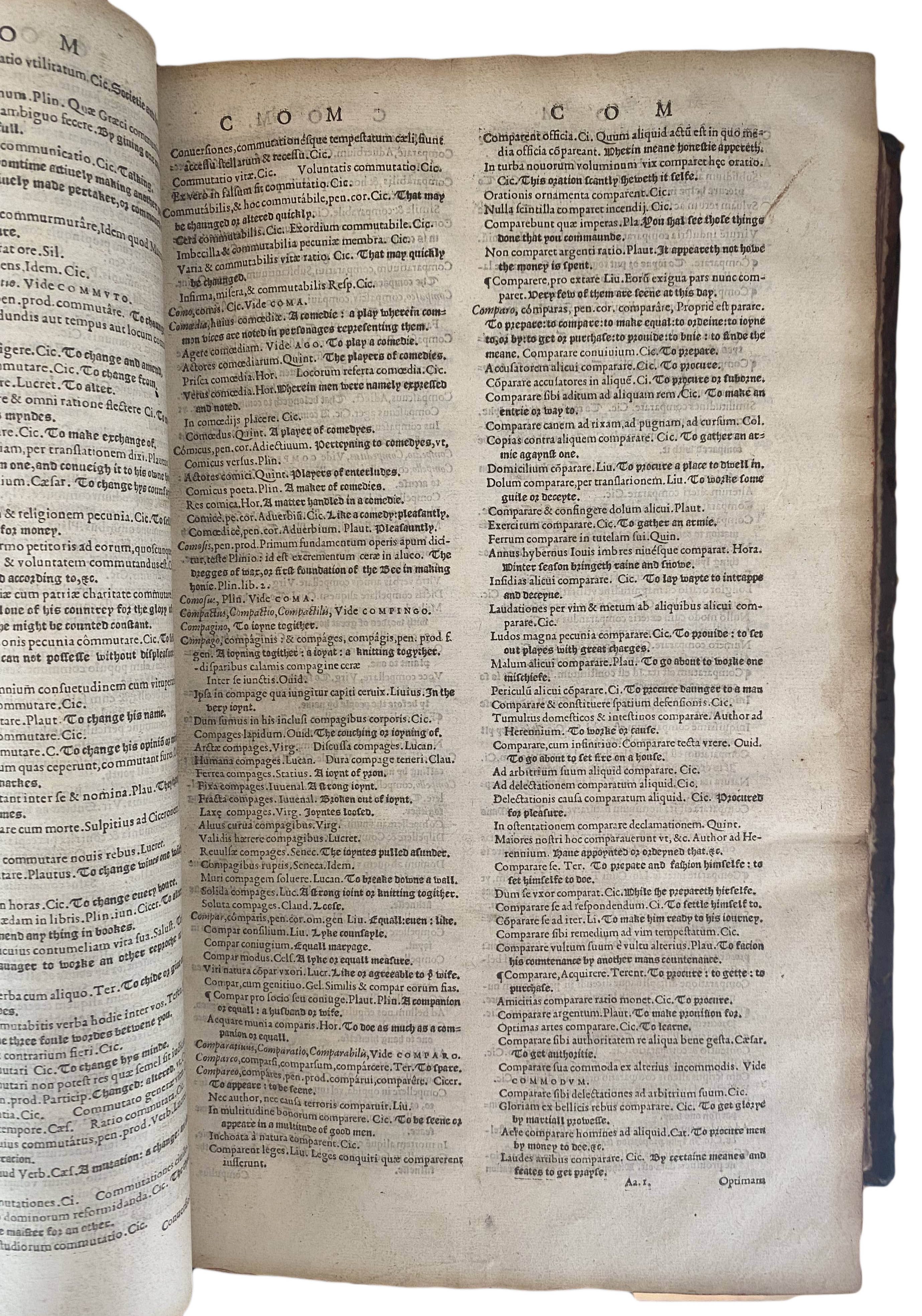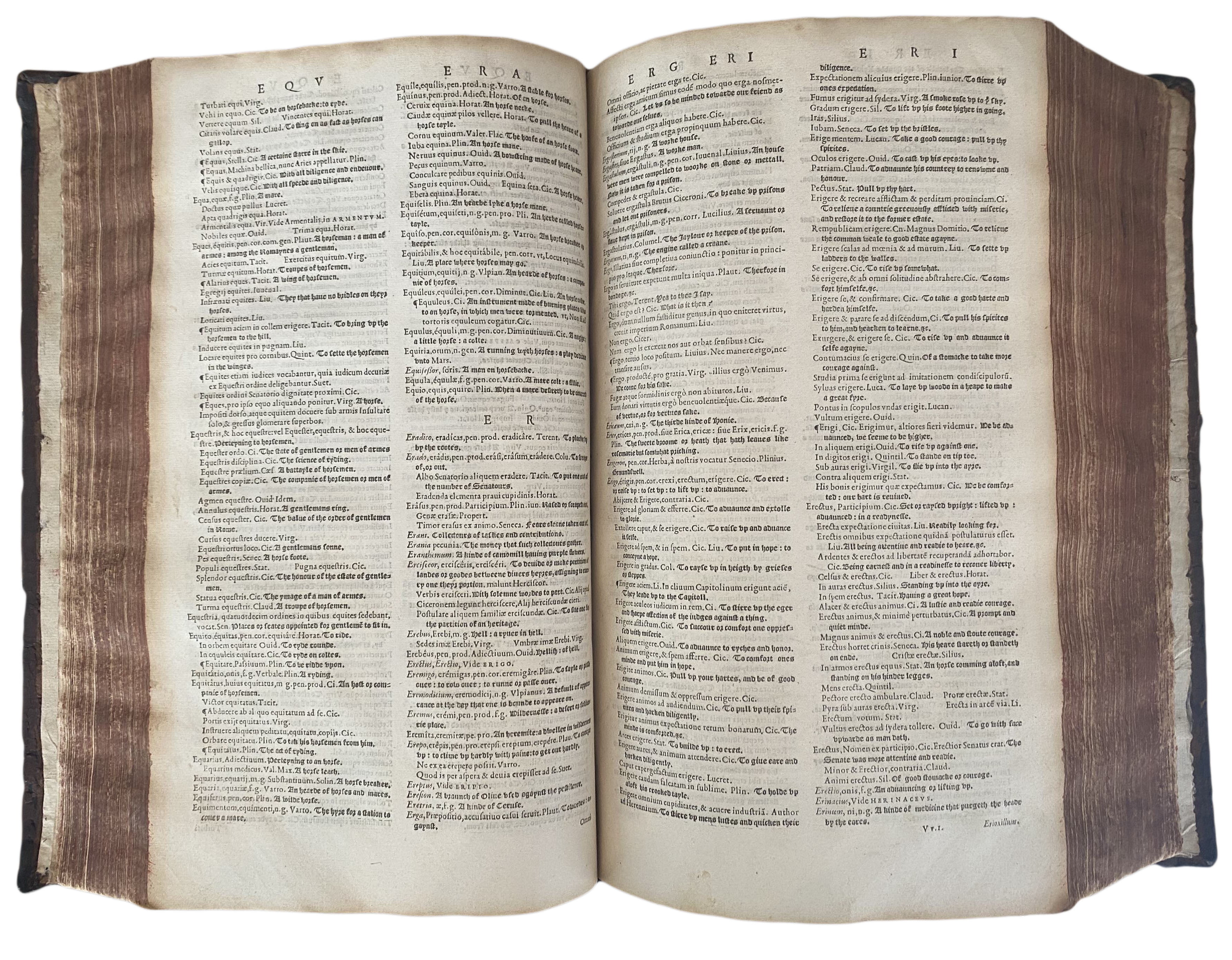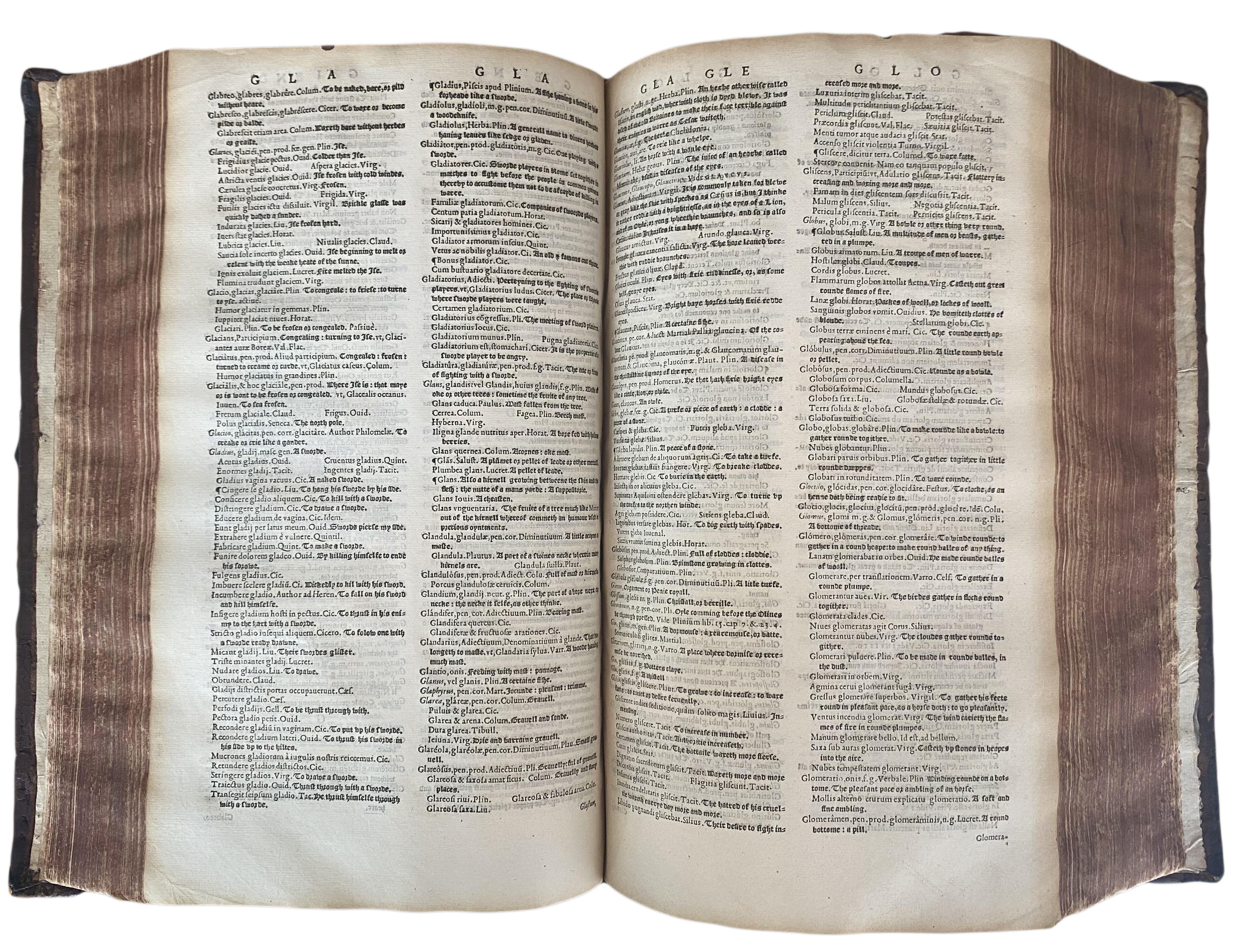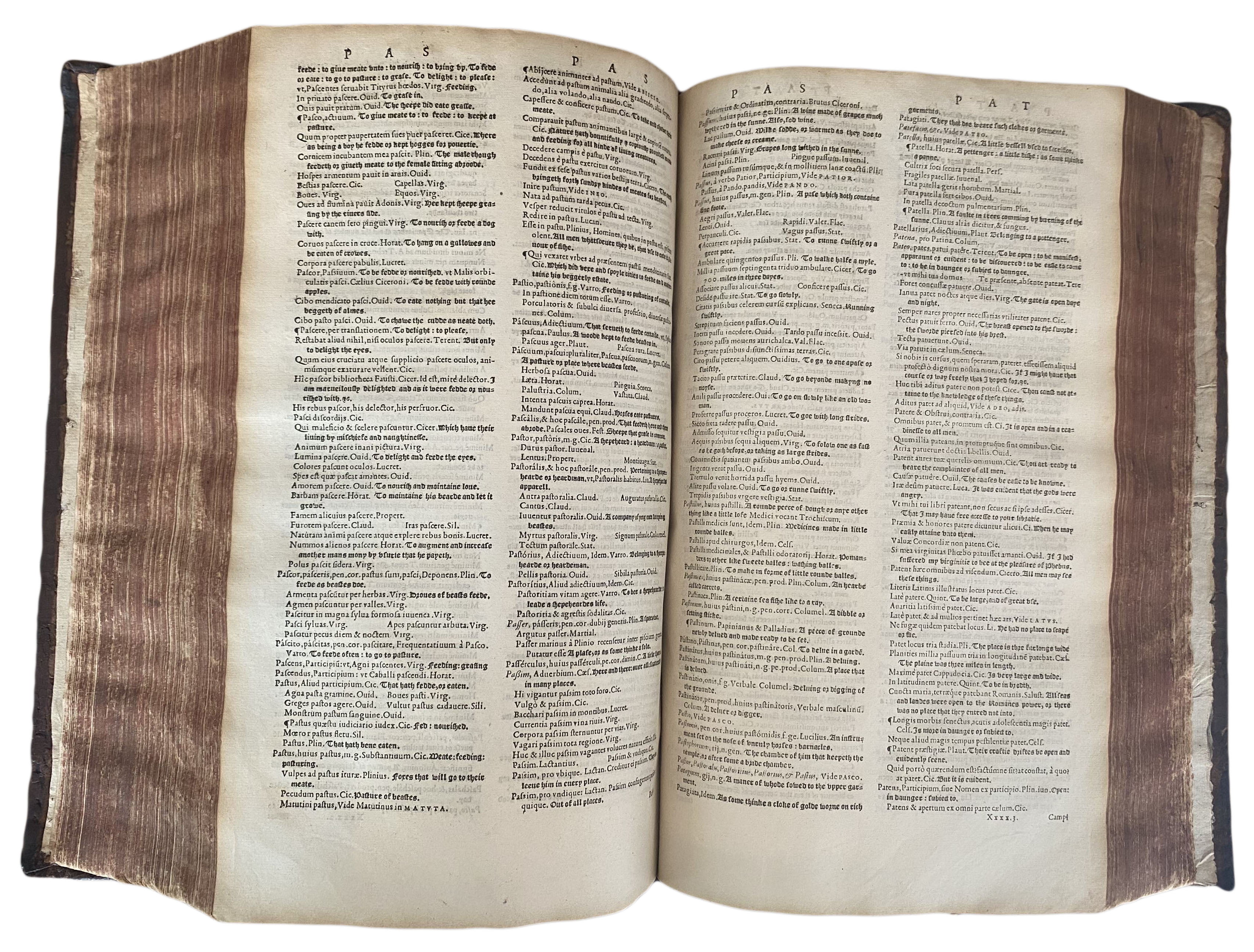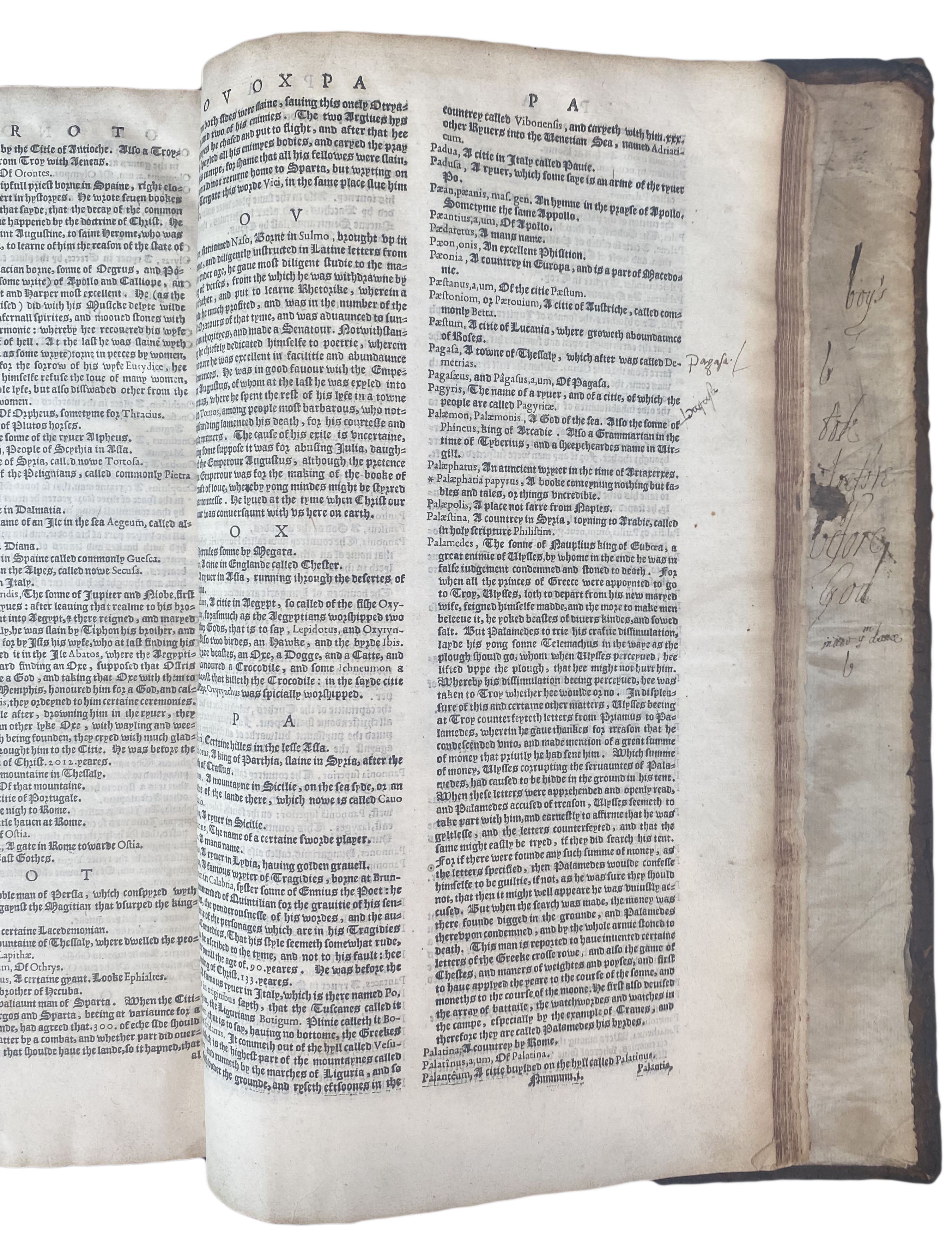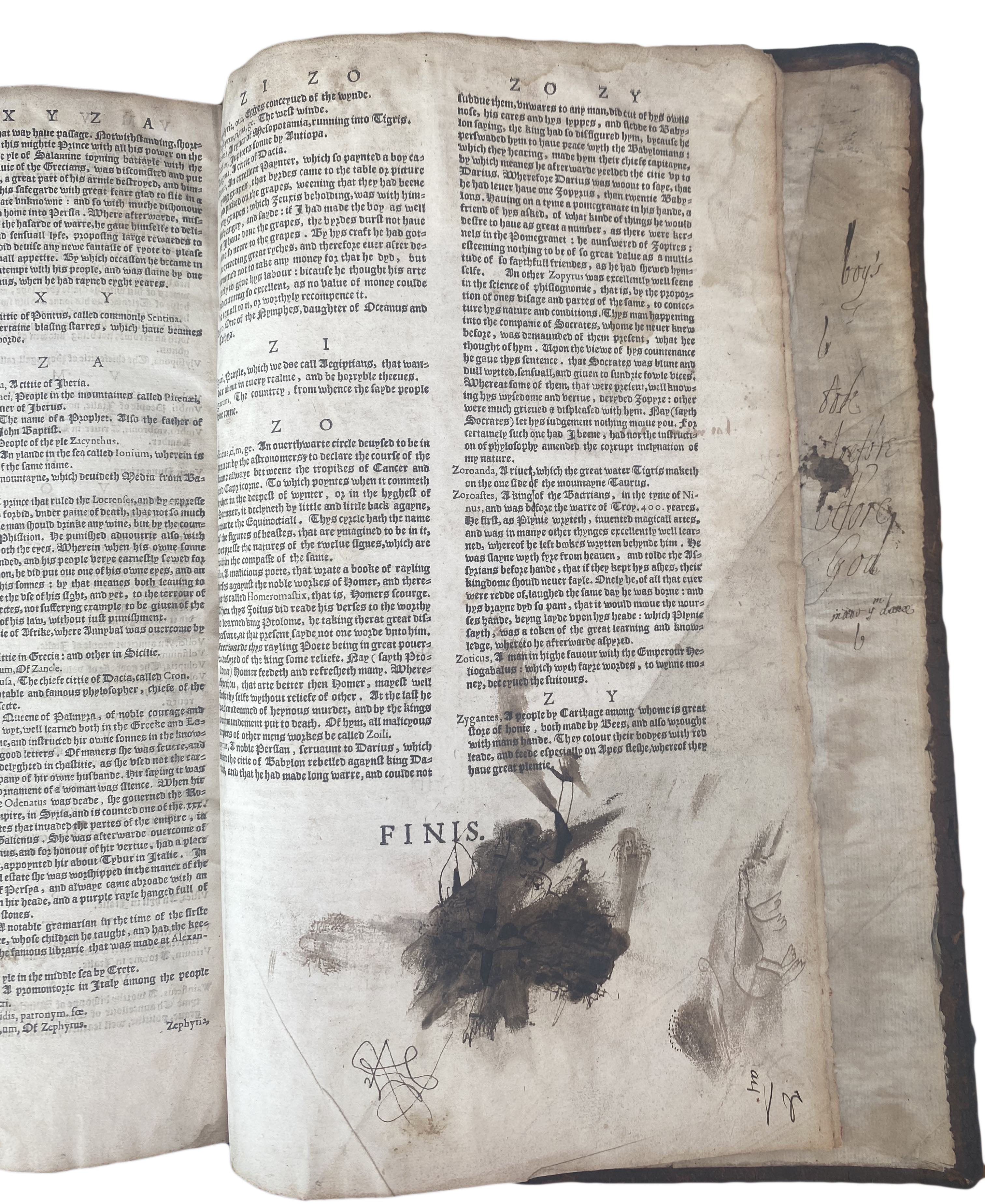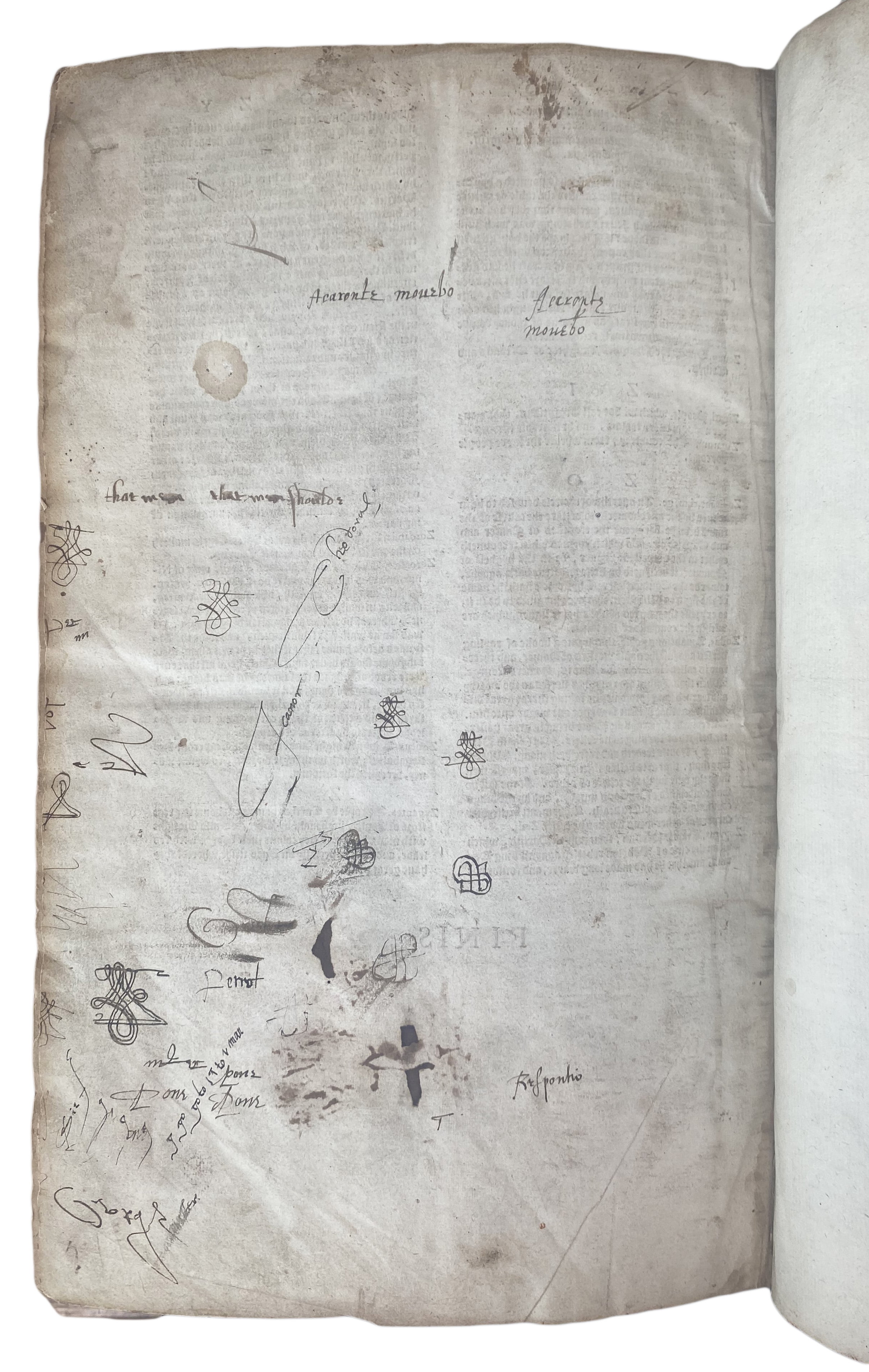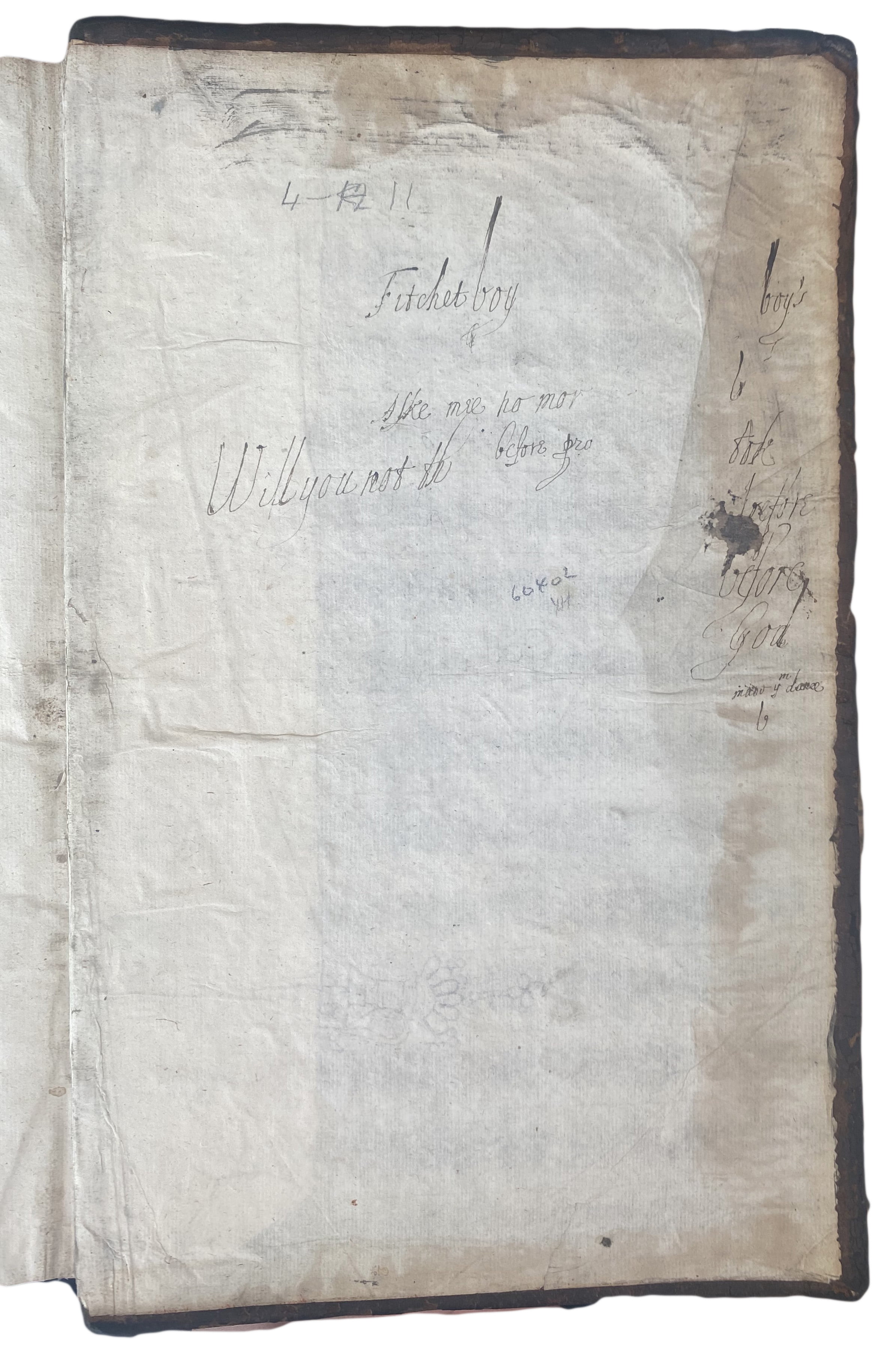COOPER, Thomas.
Thesaurus linguæ Romanæ & Britannicæ tam accurate congestus
London, [Henry Denham], 1573£1,750.00
Folio. Double column, black and roman letter, chained bear with ragged staff device on title page. Marginalia at head of title page in an early hand and slightly later in the dictionary of names and on the final paste-down. Small ink splodge on a couple of leaves obscuring a few letters on ff. Ooooo3-4 . Two ff. slightly shaved at head affecting headline, edges lightly browned throughout. A good, clean, well-margined copy in early 17th century polished calf with armorial gilt stamp of a duck with wings elevated, charged on the breast with a crescent and wreathed in olive on both covers. Rebacked, red morocco label gilt, a.e.r..
Second edition of Cooper’s Dictionary, a key text in the development of Elizabethan education, highly regarded as one of the most complete Latin-English dictionaries of all time. Marginal ms. notes in the names section highlight a few entries, and a number of comments and doodles near the end indicate the book was in schoolroom use. A note in a different early hand appears on the title page, “Quidquid agis prudenter agas et respice finem (Whatever you do, do it wisely and consider the end)” from Gesta Romanorum. The armorial stamp is of the Platt family of Plaistow, Essex, or the Langfords of London and Middlesex.
Master of Magdalen College, Oxford, and Bishop of Winchester, Thomas Cooper began his career by editing Sir Thomas Elyot’s Bibliotheca Eliotae in 1548 before writing a continuation of Thomas Lanquet’s Chronicle of the World in 1549. The Thesaurus, first published in 1565, was his first independent work.
Cooper’s Thesaurus borrows heavily from his own edition of Bibliotheca Eliotae as well as Robert Stephanus’ Latin Thesaurus, and he was later accused of translating the latter verbatim as his own work. The printer who published both editions was also blamed. This edition is listed in Lowndes as an extended version of Bibliotheca, under the name Elyot, Sir Thomas rather than Cooper’s own.
The majority if the Thesaurus lists Latin words and phrases with a citation to a Latin author, followed by an English translation. In some cases, pronunciation notes and examples are provided, the latter had not previously been included in any English dictionary. For example, the entry “Dolor, doloris, pen.pro.m.g.Griefe:paine,sorow,wofulnesse.”, contains “Morsus foloris acer. Cic. The grievous nipping of sorrow.” and “Carere dolore, Vide Careo.”
There is also a separate dictionary of names following the main section, which gives Latin names of Classical groups, locations and figures, with a brief explanation or translation in English.
Queen Elizabeth I was greatly pleased with the Thesaurus and stated her intent to promote its author as much as was within her power. The work was monumental in the study of English, and became standard reference from dramatists of the Elizabethan era, with Shakespeare thought to have used it for reference. It is believed that partway through Cooper’s writing, his wife grew exasperated with his late hours and threw his work into the fire, forcing him to begin again.
STC 5687; ESTC S107254Out of stock


